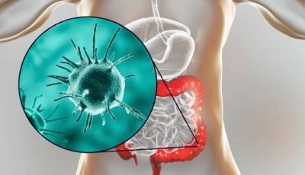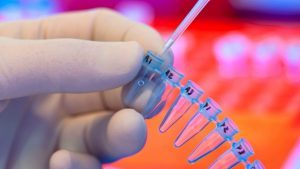
Parasitic diseases are a large group of diseases caused by helminths, some arthropods and protozoa.
Despite all the achievements of modern medicine and advanced hygiene, according to statistics, about 90% of people around the world at least once in their lives face these pathologies. How to suspect a disease and what tests for parasites to take, you can learn from this article.
Types of parasites
Parasites are organisms that survive due to the vital activity of living beings. Settling in the human body, in the process of their growth and reproduction, they lead to a deficiency of trace elements, vitamins, proteins and other nutrients. They can both lead to recurrences and exacerbations of chronic pathologies, and themselves cause damage to internal organs.
There are the following types of parasites that can cause disease in humans:
- protozoa (amoeba, lamblia);
- pathogenic microorganisms (chlamydia, mycoplasma and others);
- helminths (roundworms, pinworms, beef and pork tapeworms, etc. );
- parasitic arthropods (scabies, demodex).
The main characteristic of the pathologies caused by them is a long-term asymptomatic or asymptomatic course. Parasites cleverly hide their existence, trying to "push everything out of the host's body" until its reserves are depleted and the organ or tissue is severely damaged.
Symptoms of parasitic diseases
Parasitic pathologies most often mean helminthiasis - diseases caused by the presence of worms in the body. In most cases, they are found in children, but can also develop in adults in case of neglect of hygiene rules. For a long time after the infection, they do not appear in any way or are accompanied by subtle symptoms that often go unnoticed.

Each disease is characterized by certain characteristics, but there are also common symptoms:
- Headache, dizziness, increased weakness and fatigue. These manifestations are the result of intoxication as a result of poisoning by waste products of parasites.
- Exacerbation of bronchial asthma and allergic rhinitis, dermatitis, urticaria. They occur as a result of hypersensitivity to helminth cells and the products of their excretion.
- Disorders of the digestive system (abdominal pain, nausea, vomiting, heartburn, constipation and diarrhea). Helminths, parasitizing in the intestinal lumen, lead to inflammation, intestinal obstruction due to obstruction of the intestinal lumen.
- Anemia, vitamin deficiency, weight loss. This is due to a lack of protein, vitamins and minerals, reduced hormone production.
- Sleep disorders, chronic fatigue, irritability, nervousness, muscle and joint pain.
Detection of most helminth species requires stool analysis or blood donation for specific antibodies. You can take a study in the clinic at the place of residence, on admission to the hospital, as well as in one of the private laboratories. Some medical centers offer to undergo an extensive examination, during which it is possible to diagnose the presence or absence of several types of parasites in the body at once.
Parasite tests

What tests should be taken in case of suspicion of a parasitic disease, the attending physician will tell based on complaints, history and clinical manifestations of the disease.
The diagnosis begins with a complete blood count. The most typical changes in helminthiasis will be:
- Decreased hemoglobin levels and decreased red blood cell count (resulting from protein and iron deficiency).
- Increased white blood cell count, accelerated ESR (these are signs of inflammation of the internal organs, especially the gastrointestinal tract).
- Increased eosinophils (a characteristic symptom of allergy that occurs in response to the irritating effect of helminth waste products).
Stool analysis for helminth eggs and scrapings is used for a more accurate diagnosis. When examining the stool, it is possible to detect the causes of enterobiosis, ascariasis, hymenolipedosis, as well as to detect the presence of protozoan microorganisms (lamblia).
It is important to remember that with one study, the probability of detecting worm eggs in the feces is 30%. Therefore, to clarify the diagnosis with the first negative result, the test is performed twice more with an interval of 2-4 days.
To improve the accuracy of the test, it is important to carefully prepare for the delivery of stool for analysis. Collect biological material only in a special sterile container that you can buy at the pharmacy. A few days before the analysis you should stop eating coloring products (beets, red fruits, exotic fruits, pastries and drinks with colorants), not to use laxatives, as well as rectal suppositories.
Immunoassay
With the help of ELISA analysis in adults and children it is possible to detect antibodies produced by the human body in response to the presence of foreign objects in it. For this, blood is taken from a vein in which specific IgG antibodies against Giardia, Trichomonas, swine and bovine tapeworms, Trichinella, echinococci, toxocara, roundworms and pinworms can be detected in the laboratory. With the help of this study you can detect the presence of almost all parasites in the human body.
Preparing for research is not difficult. It is necessary to make an analysis in the morning, on an empty stomach after 8-10 hours on an empty stomach. On the eve of the study, it is recommended not to take antibacterial and antihistamines, as well as not to eat food allergens (honey, seafood, exotic fruits and red fruits, nuts). Immediately before donating blood, experts recommend that you relax in the laboratory waiting room for 10-15 minutes.
The results of the study become known after 1-2 days. These studies are performed both as a primary diagnosis and as a control of treatment.
Timely detection and modern effective treatment of parasitic diseases helps to avoid complications dangerous to health.




























